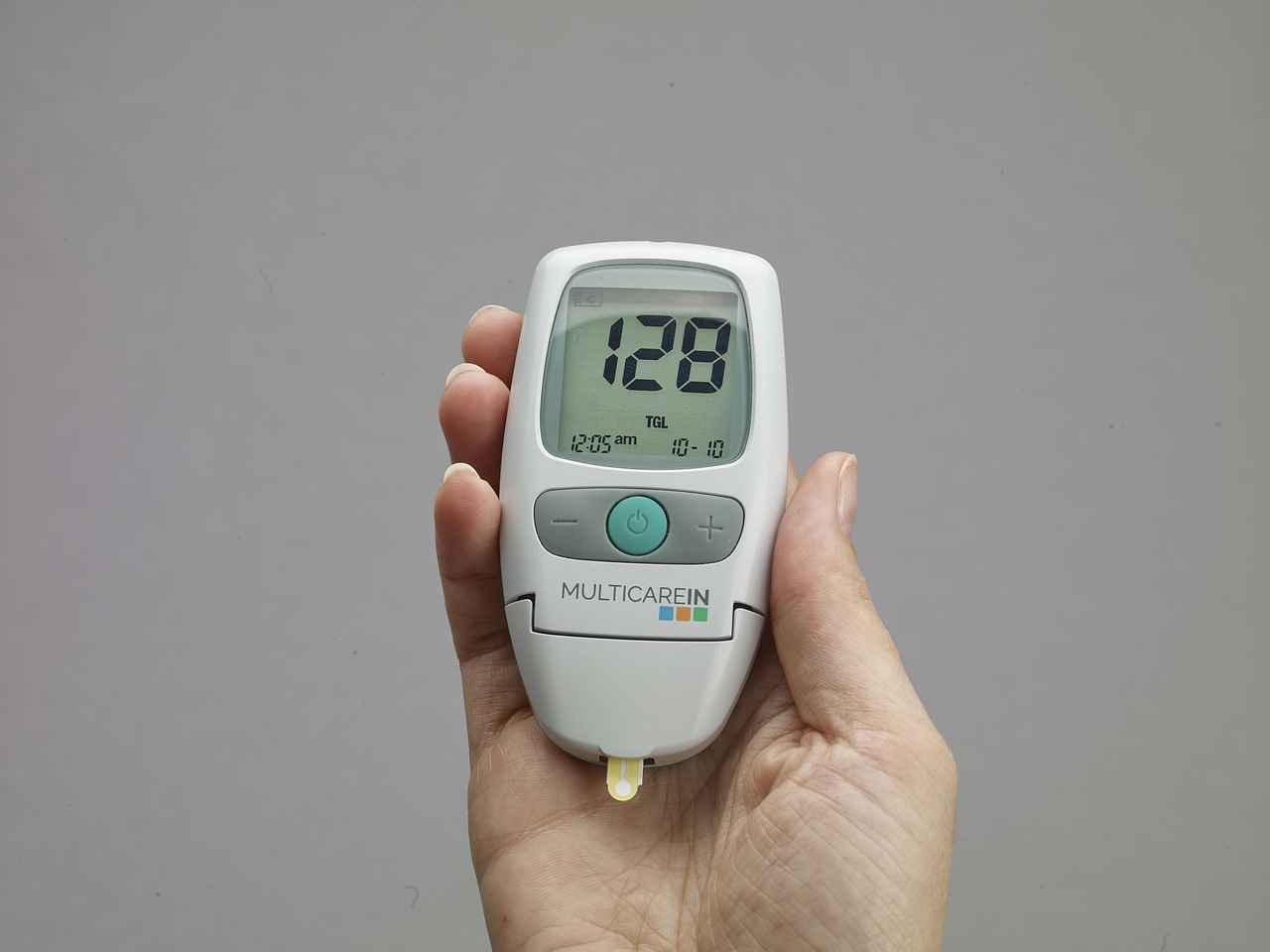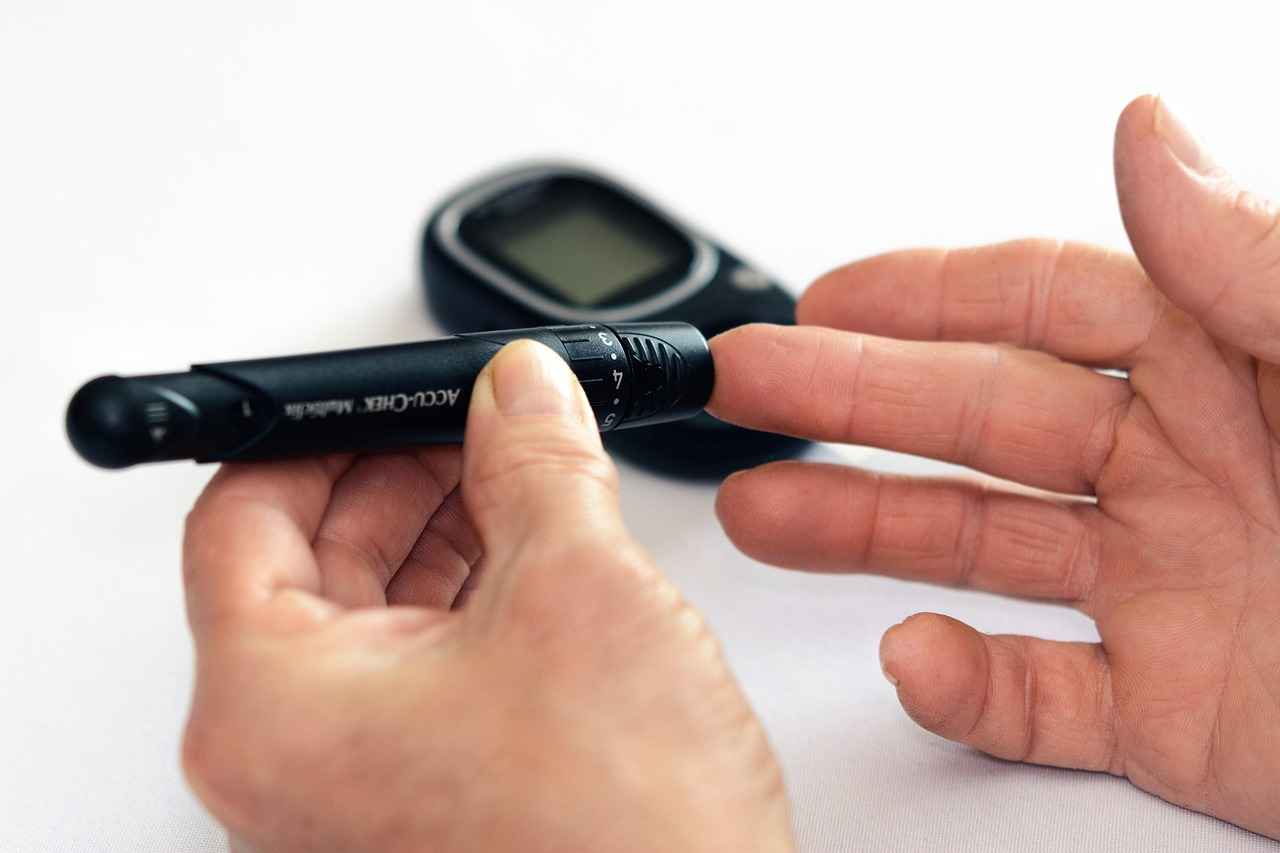This article delves into the numerous advantages of CoQ10 for blood circulation, exploring its mechanisms, benefits, and practical applications. Discover how this powerful antioxidant can enhance cardiovascular health and overall well-being.
What is CoQ10?
CoQ10, or coenzyme Q10, is a naturally occurring antioxidant found in the body. It plays a critical role in energy production and cellular function, particularly within the heart and muscles. This compound is essential for converting food into energy, making it vital for maintaining overall health.
How Does CoQ10 Improve Blood Circulation?
CoQ10 enhances blood circulation by improving energy production in cells, which is vital for maintaining healthy blood vessels and promoting efficient blood flow throughout the body. Increased energy levels in endothelial cells, which line blood vessels, can lead to better vascular function.
The Role of CoQ10 in Heart Health
CoQ10 is essential for heart health as it helps reduce oxidative stress and inflammation, two key factors that can negatively impact cardiovascular function and circulation. By combating these issues, CoQ10 supports a healthy heart and improved blood flow.
Oxidative Stress and Its Impact
Oxidative stress occurs when there is an imbalance between free radicals and antioxidants in the body, leading to cell damage and impaired circulation. CoQ10 helps combat this issue effectively by neutralizing free radicals, thereby protecting blood vessels.
Reducing Inflammation
Chronic inflammation can hinder blood flow and contribute to heart disease. CoQ10 has anti-inflammatory properties that may help mitigate these effects and support better circulation, promoting overall cardiovascular health.
Benefits of CoQ10 for Athletes
Athletes often use CoQ10 to enhance performance and recovery. By improving energy production and reducing fatigue, CoQ10 can lead to better blood circulation during physical activity, helping athletes perform at their best.
Recommended Dosages of CoQ10
Understanding the appropriate dosage of CoQ10 is crucial for maximizing its benefits. Most studies suggest a daily intake ranging from 100 to 300 mg for optimal results in circulation improvement.
Factors Influencing Dosage
Individual factors such as age, health status, and specific health goals can influence the ideal dosage of CoQ10. Consulting with a healthcare professional is advisable to determine the best amount for you.
Forms of CoQ10 Supplements
CoQ10 is available in various forms, including ubiquinone and ubiquinol. Each form has different absorption rates and benefits, making it essential to choose the right type for your needs.
Potential Side Effects of CoQ10
While CoQ10 is generally considered safe, some individuals may experience mild side effects. Understanding these potential reactions can help users make informed decisions about supplementation.
Common Side Effects
Some common side effects of CoQ10 include gastrointestinal discomfort, headaches, and insomnia. Being aware of these can help users monitor their responses to the supplement.
Interactions with Medications
CoQ10 may interact with certain medications, particularly blood thinners. It’s essential to consult a healthcare provider before starting CoQ10, especially for those on medication.
Conclusion: The Importance of CoQ10 for Circulation
In summary, CoQ10 offers significant benefits for blood circulation and overall health. Its antioxidant properties and role in energy production make it a valuable supplement for maintaining cardiovascular wellness.

What is CoQ10?
CoQ10, also known as coenzyme Q10, is a vital antioxidant that occurs naturally within the human body. It is primarily located in the mitochondria of cells, where it plays an essential role in energy production and overall cellular function. This coenzyme is particularly crucial in high-energy organs such as the heart and muscles, where it contributes significantly to maintaining optimal performance and health.
As an antioxidant, CoQ10 helps to neutralize harmful free radicals, thereby reducing oxidative stress. This is important because oxidative stress can lead to cellular damage and various health issues, including cardiovascular diseases. By mitigating these effects, CoQ10 supports not just cellular health but also enhances the body’s ability to produce energy efficiently.
Moreover, CoQ10 is involved in the production of ATP (adenosine triphosphate), the energy currency of the cell. This process is vital for sustaining life and ensuring that our bodily systems function effectively. Without adequate levels of CoQ10, energy production can diminish, leading to fatigue and decreased physical performance.
Research has shown that CoQ10 levels may decline with age or due to certain health conditions, making supplementation a consideration for many individuals. It is commonly used to support heart health, improve energy levels, and enhance athletic performance. Additionally, CoQ10 has been studied for its potential benefits in managing conditions such as hypertension and heart failure.
In summary, CoQ10 is not just a simple antioxidant; it is a fundamental component of our cellular machinery, essential for energy production and overall health. Understanding its role can lead to better health choices and improved well-being.

How Does CoQ10 Improve Blood Circulation?
CoQ10, or coenzyme Q10, is an essential nutrient that plays a pivotal role in enhancing blood circulation. Its primary function revolves around boosting energy production within cells, which is crucial for maintaining the health of blood vessels and ensuring efficient blood flow throughout the body. By supporting cellular energy, CoQ10 contributes to the optimal functioning of various organs, particularly the heart.
The human body requires a constant supply of energy to maintain physiological functions, and CoQ10 is integral to this process. It assists in the production of adenosine triphosphate (ATP), the energy currency of the cell. A sufficient level of ATP is vital for the smooth operation of the cardiovascular system. When cells produce more energy, they can function more effectively, leading to improved blood circulation.
Furthermore, CoQ10 acts as a powerful antioxidant, helping to neutralize harmful free radicals that can cause oxidative stress. This oxidative stress is known to damage blood vessels and impair circulation. By mitigating these effects, CoQ10 promotes a healthier vascular environment, facilitating better blood flow.
In addition to its antioxidant properties, CoQ10 has been shown to support the endothelium, the thin layer of cells lining the blood vessels. A healthy endothelium is essential for regulating blood flow and pressure. CoQ10 enhances endothelial function, which is crucial for maintaining optimal blood circulation.
In summary, CoQ10 enhances blood circulation by improving energy production in cells, protecting against oxidative stress, and supporting endothelial health. These combined effects are vital for maintaining healthy blood vessels and promoting efficient blood flow throughout the body.
The Role of CoQ10 in Heart Health
Coenzyme Q10, commonly known as CoQ10, is a vital nutrient that plays a significant role in maintaining heart health. This powerful antioxidant is naturally produced by the body and is crucial for the production of energy in cells, particularly in the heart and muscles. Its importance cannot be overstated, especially when it comes to combating two major threats to cardiovascular health: oxidative stress and inflammation.
Understanding Oxidative Stress
Oxidative stress arises when there is an imbalance between free radicals and antioxidants in the body. This condition can lead to cellular damage, which is particularly detrimental to cardiovascular function. CoQ10 helps mitigate oxidative stress by neutralizing free radicals, thereby protecting heart cells and promoting better circulation.
The Impact of Inflammation on Heart Health
Chronic inflammation is another critical factor that can impair blood flow and contribute to heart disease. CoQ10 exhibits notable anti-inflammatory properties that can help reduce inflammation in blood vessels, thus supporting improved circulation and overall heart health.
Benefits for Cardiovascular Function
- Enhances Energy Production: CoQ10 boosts ATP production, providing the heart with the energy it needs to function efficiently.
- Improves Blood Flow: By supporting healthy endothelial function, CoQ10 promotes better blood vessel dilation and overall circulation.
- Reduces Risk Factors: Regular supplementation may help lower blood pressure and improve lipid profiles, further protecting heart health.
Conclusion
In conclusion, CoQ10 is essential for maintaining heart health due to its ability to reduce oxidative stress and inflammation. By supporting energy production and improving blood circulation, CoQ10 proves to be a valuable ally in promoting cardiovascular wellness. For those considering supplementation, consulting with a healthcare professional can help determine the appropriate dosage and form for individual needs.
Oxidative Stress and Its Impact
Oxidative stress is a significant health concern that arises when there is an imbalance between free radicals and antioxidants in the body. This imbalance leads to cellular damage, which can impair various physiological functions, including blood circulation. Understanding the implications of oxidative stress is crucial for maintaining overall health and well-being.
When oxidative stress occurs, the excess free radicals can cause damage to cellular structures, including DNA, proteins, and lipids. This damage can lead to chronic diseases such as cardiovascular disease, diabetes, and even cancer. Furthermore, impaired circulation due to oxidative stress can result in reduced oxygen and nutrient delivery to tissues, affecting their functionality.
CoQ10, or coenzyme Q10, is a powerful antioxidant that plays a vital role in combating oxidative stress. It is naturally produced in the body and is essential for energy production in cells, particularly in the heart and muscles. By enhancing the body’s antioxidant defenses, CoQ10 helps to neutralize free radicals, thereby reducing cellular damage and promoting better circulation.
| Effects of Oxidative Stress | Potential Health Issues |
|---|---|
| Cellular Damage | Increased risk of chronic diseases |
| Impaired Circulation | Reduced oxygen delivery to tissues |
| Inflammation | Contributes to heart disease |
In conclusion, addressing oxidative stress is vital for maintaining healthy blood circulation and preventing chronic health issues. Incorporating antioxidants like CoQ10 into your diet can significantly enhance your body’s ability to fight oxidative damage and support overall cardiovascular health.
Reducing Inflammation
is a crucial aspect of maintaining overall health, particularly when it comes to cardiovascular well-being. Chronic inflammation can significantly hinder blood flow and contribute to the development of heart disease. This condition often leads to various health complications, making it vital to address inflammation effectively.
CoQ10, or coenzyme Q10, is a powerful antioxidant that has gained attention for its potential to combat inflammation. By reducing oxidative stress, CoQ10 helps protect cells from damage and promotes better circulation. This is particularly important for individuals who may be at risk of cardiovascular issues due to chronic inflammation.
One of the key mechanisms through which CoQ10 operates is by enhancing mitochondrial function. Mitochondria are the energy-producing units of cells, and their optimal performance is essential for maintaining healthy blood vessels. When mitochondrial function is improved, it can lead to more efficient blood flow, thereby supporting overall cardiovascular health.
Furthermore, CoQ10 has been shown to modulate inflammatory pathways in the body. By inhibiting the production of pro-inflammatory cytokines, CoQ10 can help reduce the inflammatory response, which is often heightened in conditions such as atherosclerosis. This reduction in inflammation not only aids in improving blood circulation but also lowers the risk of heart disease.
Incorporating CoQ10 into one’s diet, either through food sources or supplements, can be a practical approach to managing inflammation. Foods rich in CoQ10 include fatty fish, organ meats, and whole grains. For those looking for a more concentrated dose, CoQ10 supplements are widely available and can be tailored to individual health needs.
In conclusion, addressing chronic inflammation is essential for promoting healthy blood flow and preventing heart disease. CoQ10 offers a promising solution with its anti-inflammatory properties, making it a valuable addition to a heart-healthy lifestyle.
Benefits of CoQ10 for Athletes
Athletes are constantly seeking ways to enhance their performance and optimize recovery times. One supplement that has gained significant attention in the sports community is CoQ10 (coenzyme Q10). This naturally occurring antioxidant plays a vital role in energy production, and its benefits extend beyond just improving athletic performance.
Enhancing Energy Production
CoQ10 is essential for the production of adenosine triphosphate (ATP), the primary energy carrier in cells. By increasing ATP levels, athletes can experience enhanced energy output during intense workouts and competitions. This boost in energy can lead to improved endurance, allowing athletes to perform at their best for extended periods.
Reducing Fatigue
Fatigue is a common challenge for athletes, especially during prolonged physical activity. CoQ10 helps reduce oxidative stress and muscle fatigue by neutralizing free radicals generated during intense exercise. This reduction in fatigue can result in quicker recovery times and less soreness after workouts, enabling athletes to train more effectively.
Improving Blood Circulation
Efficient blood circulation is crucial for delivering oxygen and nutrients to working muscles. CoQ10 enhances blood flow by promoting healthy endothelial function, which is vital for maintaining optimal cardiovascular health. Improved circulation ensures that athletes receive the necessary nutrients to support their performance and recovery.
Supporting Overall Health
In addition to its performance-enhancing benefits, CoQ10 also supports overall health. Its antioxidant properties help protect the body from oxidative damage, which can contribute to chronic diseases. By incorporating CoQ10 into their supplement regimen, athletes can not only improve their performance but also support their long-term health.
Conclusion
In summary, CoQ10 offers a multitude of benefits for athletes, including enhanced energy production, reduced fatigue, and improved blood circulation. By integrating this powerful antioxidant into their training routines, athletes can optimize their performance and recovery, paving the way for greater success in their sports endeavors.

Recommended Dosages of CoQ10
Understanding the appropriate dosage of CoQ10 is crucial for maximizing its benefits. This powerful antioxidant has garnered attention for its role in enhancing blood circulation and overall health. To achieve optimal results, most studies suggest a daily intake ranging from 100 to 300 mg. This dosage is generally considered effective for improving circulation and supporting cardiovascular health.
When determining the ideal dosage, it is essential to consider several individual factors:
- Age: Older adults may require higher doses to achieve the same effects as younger individuals.
- Health Status: Those with specific health conditions, such as heart disease, may benefit from increased dosages, but should consult a healthcare provider first.
- Activity Level: Athletes or individuals with higher physical demands might need more CoQ10 to support enhanced energy production and recovery.
Additionally, the form of CoQ10 supplement can influence absorption and effectiveness. There are two main forms available:
- Ubiquinone: This is the oxidized form of CoQ10, commonly found in supplements.
- Ubiquinol: The reduced form, which is more bioavailable and may be better absorbed by the body.
It is always advisable to consult with a healthcare professional before starting any supplementation regimen, especially if you are taking medications or have underlying health conditions. This ensures that you find the right dosage tailored to your unique needs.
In summary, while a daily intake of 100 to 300 mg of CoQ10 is recommended for most individuals, personal factors must be considered to determine the most effective dosage.
Factors Influencing Dosage
When considering the appropriate dosage of CoQ10, it is essential to recognize that various individual factors can significantly affect what is deemed optimal for each person. These factors include:
- Age: As individuals age, their body’s ability to produce CoQ10 naturally may decline. Older adults might require higher doses to achieve the same benefits as younger individuals.
- Health Status: Existing health conditions, such as cardiovascular diseases or metabolic disorders, can influence the necessary dosage. For instance, those with heart conditions may benefit from higher doses to improve their overall heart function.
- Specific Health Goals: Whether the goal is to enhance athletic performance, reduce fatigue, or support overall cardiovascular health, the dosage may vary accordingly. Athletes, for example, might need a different dosage than someone using CoQ10 for general health maintenance.
Due to these variations, it is advisable to consult with a healthcare professional before starting any CoQ10 supplementation. A healthcare provider can assess your unique situation and recommend a dosage tailored to your individual needs.
Furthermore, it is important to consider that CoQ10 comes in different forms, such as ubiquinone and ubiquinol, which may also affect absorption rates and overall effectiveness. Therefore, understanding your health status and goals will help in choosing not only the right dosage but also the most suitable form of CoQ10 for your needs.
Forms of CoQ10 Supplements
CoQ10, or coenzyme Q10, is available in several forms, each with distinct characteristics that can influence its effectiveness and absorption in the body. Understanding these forms is crucial for selecting the right supplement to meet your health goals.
- Ubiquinone: This is the oxidized form of CoQ10 and is the most common supplement available on the market. Ubiquinone must be converted into its active form, ubiquinol, within the body to be utilized effectively. While it is generally well-absorbed, some individuals may find that they do not experience the same benefits as they would with ubiquinol.
- Ubiquinol: This is the reduced form of CoQ10 and is considered to be more bioavailable than ubiquinone. Ubiquinol is readily utilized by the body, making it a preferred choice for many, especially for older adults or those with specific health conditions that may impair CoQ10 conversion.
- Softgel Capsules: Many CoQ10 supplements come in softgel form, which can enhance absorption due to the oil-based formulation. This method is often more effective than tablets or powders, allowing for better bioavailability.
- Powdered Form: CoQ10 is also available in powdered form, which can be mixed into drinks or smoothies. This form is convenient for those who prefer to customize their dosage or incorporate it into their daily routine.
- Chewable Tablets: For individuals who have difficulty swallowing pills, chewable CoQ10 tablets offer a palatable alternative. They can provide the same benefits while being easier to consume.
When selecting a CoQ10 supplement, consider factors such as your age, health status, and specific health needs. Consulting with a healthcare professional can help you determine the most suitable form and dosage for optimal results.
In conclusion, the choice between ubiquinone and ubiquinol, along with the form of the supplement, can significantly impact the effectiveness of CoQ10. Understanding these differences will empower you to make informed decisions that can enhance your cardiovascular health and overall well-being.

Potential Side Effects of CoQ10
CoQ10, or coenzyme Q10, is a supplement widely recognized for its benefits in enhancing energy production and supporting cardiovascular health. However, while it is generally deemed safe for most individuals, it is essential to be aware of the potential side effects that may arise during supplementation. Understanding these reactions can empower users to make informed choices regarding their health.
Common Side Effects
- Gastrointestinal Discomfort: Some users may experience mild digestive issues, including nausea, diarrhea, or stomach upset. These symptoms are usually temporary and may subside as the body adjusts to the supplement.
- Headaches: A small percentage of individuals report headaches after starting CoQ10. This could be due to changes in blood flow or other metabolic adjustments in the body.
- Insomnia: In some cases, CoQ10 may cause difficulty sleeping, particularly if taken in higher doses or later in the day. It is advisable to take the supplement in the morning to minimize this risk.
Interactions with Medications
CoQ10 has the potential to interact with various medications, particularly blood thinners such as warfarin. This interaction can affect the efficacy of the medication and may lead to complications. Therefore, it is crucial for individuals on such medications to consult with a healthcare provider before incorporating CoQ10 into their regimen.
Consultation and Monitoring
Before starting any new supplement, including CoQ10, it is advisable to consult with a healthcare professional. They can provide personalized advice based on individual health conditions, existing medications, and overall wellness goals. Monitoring one’s response to the supplement can also help in identifying any adverse effects early on.
In conclusion, while CoQ10 is typically safe and beneficial, being aware of potential side effects allows users to navigate their supplementation journey with greater confidence. By staying informed and consulting healthcare providers, individuals can maximize the benefits of CoQ10 while minimizing risks.
Common Side Effects
Common Side Effects of CoQ10
While CoQ10 is widely recognized for its numerous health benefits, it is important for users to be aware of potential side effects. Understanding these effects can help individuals monitor their reactions and make informed decisions about supplementation.
- Gastrointestinal Discomfort: Some users report experiencing stomach upset, nausea, or diarrhea after taking CoQ10. This can often be mitigated by taking the supplement with food.
- Headaches: A common side effect, headaches may occur in some individuals. This could be attributed to changes in blood pressure or other bodily adjustments as a result of supplementation.
- Insomnia: For some, CoQ10 may lead to difficulty sleeping. It is recommended to take the supplement earlier in the day to minimize this effect.
- Allergic Reactions: Although rare, some individuals may experience allergic reactions to CoQ10. Symptoms can include rash, itching, or swelling. If any of these occur, it is advisable to discontinue use and consult a healthcare provider.
- Fatigue: Paradoxically, while CoQ10 is often used to boost energy levels, some users may initially feel fatigued as their body adjusts to the supplement.
Being aware of these potential side effects is crucial for anyone considering CoQ10 as a supplement. It is always best to consult with a healthcare professional before starting any new supplement regimen, especially for individuals with pre-existing health conditions or those taking medications.
In summary, while CoQ10 is generally safe for most people, being informed about the possible side effects can enhance the overall experience and effectiveness of the supplement.
Interactions with Medications
CoQ10, or coenzyme Q10, is a powerful antioxidant that plays a vital role in energy production and cardiovascular health. However, it is important to be aware of its potential , particularly for individuals taking specific prescriptions.
One of the most notable interactions involves blood thinners. Medications such as warfarin, which are prescribed to prevent blood clots, may have their effectiveness altered when taken alongside CoQ10. This is primarily because CoQ10 has been shown to have a vitamin K-like effect, which can potentially counteract the action of these anticoagulants, leading to an increased risk of clot formation. Therefore, individuals on blood thinners should approach CoQ10 supplementation with caution.
It is essential for anyone considering CoQ10 to consult with a healthcare provider before starting the supplement, especially if they are currently on any medication. A healthcare professional can provide personalized advice based on individual health conditions and medication regimens.
In addition to blood thinners, CoQ10 may interact with other medications, including:
- Diabetes medications: CoQ10 may lower blood sugar levels, potentially enhancing the effects of diabetes medications.
- Statins: While statins lower cholesterol, they can also deplete CoQ10 levels in the body. Supplementing with CoQ10 may help mitigate some side effects associated with statin use.
- Beta-blockers: These medications, used for managing heart conditions, may also interact with CoQ10, affecting its efficacy.
Due to these potential interactions, it is crucial to maintain open communication with healthcare providers and discuss any supplements being taken. This ensures that the benefits of CoQ10 can be maximized while minimizing the risk of adverse effects.
In conclusion, while CoQ10 can offer significant health benefits, understanding its interactions with medications is vital for safe and effective use. Always consult a healthcare professional before starting any new supplement regimen.

Conclusion: The Importance of CoQ10 for Circulation
In conclusion, CoQ10 is a vital coenzyme that plays a significant role in enhancing blood circulation and promoting overall health. Its unique antioxidant properties contribute to the reduction of oxidative stress, which is crucial for maintaining healthy blood vessels. By supporting energy production at the cellular level, CoQ10 ensures that the heart and muscles function optimally, thereby facilitating efficient blood flow throughout the body.
Moreover, CoQ10’s ability to combat chronic inflammation is particularly beneficial for cardiovascular health. Inflammation can lead to various cardiovascular issues, including arterial stiffness and reduced blood flow. By mitigating these inflammatory responses, CoQ10 helps in maintaining vascular health and improving circulation.
Additionally, CoQ10 is not only beneficial for those with existing heart conditions but also for athletes and individuals engaging in regular physical activity. Enhanced energy production and reduced fatigue can lead to improved performance and quicker recovery times, making it a popular supplement among fitness enthusiasts.
When considering supplementation, it’s essential to note that the recommended dosage typically ranges from 100 to 300 mg per day, depending on individual health needs and goals. Consulting with a healthcare professional can help determine the appropriate dosage tailored to personal requirements.
While CoQ10 is generally safe, users should be aware of potential side effects such as gastrointestinal discomfort and headaches. Being informed about these reactions allows individuals to monitor their responses effectively.
In summary, the incorporation of CoQ10 into daily health routines can provide substantial benefits for blood circulation and overall cardiovascular wellness. Its multifaceted role as an antioxidant and energy booster makes it a valuable addition to any health regimen.














